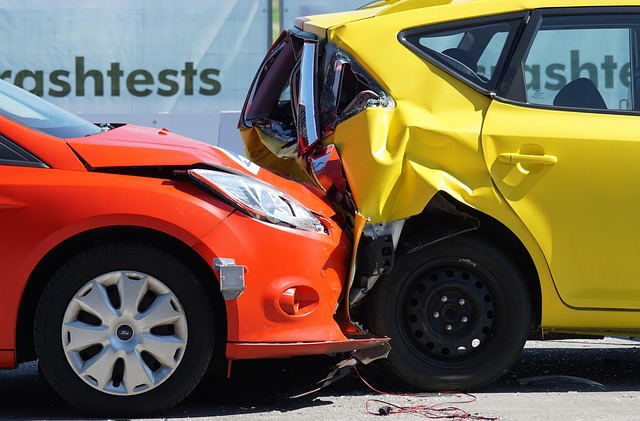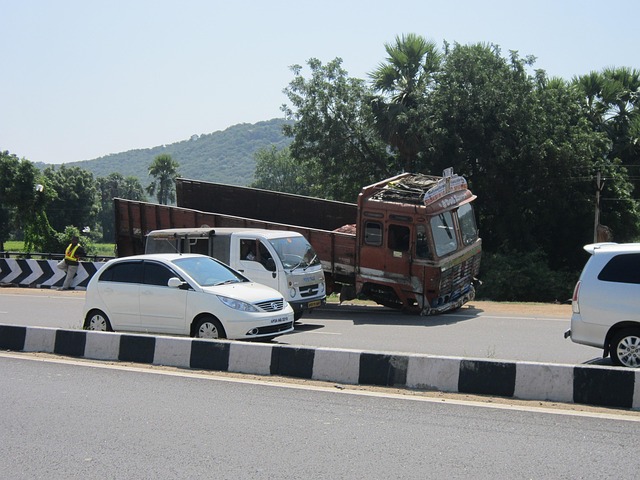Collision and comprehensive auto insurance cater to different needs. Collision insurance protects against financial losses from at-fault accidents, covering repairs or replacements up to your car's actual cash value. Comprehensive insurance, on the other hand, offers broader protection against unforeseen events like theft, vandalism, natural disasters, and animal-related incidents. When deciding, consider your driving history, location, and risk exposure. Collision is generally more affordable but limited; comprehensive provides peace of mind with broader coverage at a higher cost. Understanding these differences helps make an informed choice between Collision vs. Comprehensive Auto Insurance.
Local auto insurance options, particularly collision and comprehensive coverage, offer crucial protection for vehicle owners. This article delves into these two distinct types of coverage, elucidating their roles in safeguarding your vehicle from unforeseen events. From understanding collision insurance’s focus on accidental damages to exploring comprehensive insurance’s broader range against unexpected perils, each section guides readers through essential considerations. By the end, you’ll be equipped to make an informed decision, choosing the right auto insurance that aligns with your needs and budget.
Understanding Collision Insurance: Coverage for Accidental Damages

Collision insurance is a crucial component in your auto insurance policy, especially if you’re looking at comparing collision vs. comprehensive coverage. It provides financial protection against accidental damages to your vehicle, regardless of who is at fault in the incident. This can include coverage for incidents like hitting a fixed object, being rear-ended, or even rolling over. When you have collision insurance, repairs or replacements for your vehicle are generally covered up to its actual cash value.
Understanding what’s included in collision insurance is essential when navigating collision vs. comprehensive auto insurance options. While collision covers accidental damages, comprehensive insurance takes a broader approach by protecting against a wide range of non-accidental events such as theft, vandalism, natural disasters, and animal-related incidents. By knowing the differences, you can make an informed decision about which type of coverage best suits your needs.
Comprehensive Insurance: Protecting Against Unforeseen Perils

Comprehensive insurance offers protection against a wide range of unforeseen events, providing coverage for damages that go beyond typical collision incidents. Unlike collision insurance, which primarily covers accidents and collisions with other vehicles or objects, comprehensive insurance takes a broader approach to vehicle protection. This type of policy can shield you from financial burdens arising from natural disasters like floods, earthquakes, or theft, as well as damage caused by animals, falling objects, or vandalism.
When considering Collision vs. Comprehensive Auto Insurance, understanding these distinctions is vital. While collision coverage is essential for protecting against accidents and their immediate consequences, comprehensive insurance provides an extra layer of security, ensuring you’re not left vulnerable to unexpected events that could leave your vehicle damaged or even totaled.
When is Collision Insurance Necessary?

Collision insurance is a vital component in your auto insurance policy, particularly if you’re prone to accidents or drive on challenging terrains. It covers damages to your vehicle resulting from collisions with other vehicles, objects, or even oneself. This type of insurance is necessary when you want protection against financial losses due to at-fault accidents, which can be significantly more expensive than comprehensive coverage alone.
When choosing between collision and comprehensive auto insurance, consider the frequency of accidents in your driving history. If you’ve been in several fender benders or live in an area with high traffic congestion, collision insurance becomes essential. It ensures that repairs or replacements are covered, giving you peace of mind on the road, knowing your financial burden is mitigated in case of an accident, especially when comparing collision vs. comprehensive auto insurance options.
Benefits of Comprehensive Coverage

Comprehensive insurance offers several advantages that can be particularly beneficial for drivers, especially when comparing it to collision coverage alone. Unlike collision insurance, which primarily covers damages resulting from accidents and collisions with other vehicles or objects, comprehensive insurance provides protection against a broader range of unexpected events. This includes events like theft, vandalism, natural disasters, animal-related incidents, and even damage caused by falling objects.
By opting for comprehensive coverage, drivers gain peace of mind knowing that their vehicle is protected in various situations. It can cover repairs or even total loss, ensuring drivers don’t face significant financial burdens out of pocket. This type of insurance also includes perks like roadside assistance, which can be invaluable when facing breakdowns or other emergencies on the road. When considering Collision vs. Comprehensive Auto Insurance, comprehensive coverage’s ability to offer all-encompassing protection makes it a compelling choice for many vehicle owners.
Common Exclusions in Collision and Comprehensive Policies

Both collision and comprehensive auto insurance policies have their exclusions, which are specific situations or events that aren’t covered under the policy. When comparing collision vs. comprehensive, understanding these exclusions is key. Collision policies generally exclude coverage for damages resulting from situations like intentional acts, war, riots, or natural disasters. These events are often considered high-risk and outside the control of insurance companies.
Comprehensive policies, on the other hand, typically exclude certain types of perils such as damage caused by wear and tear, normal maintenance, or poor road conditions. They also may not cover losses if your vehicle is stolen and not recovered, or if it’s used for racing or recreational activities. Being aware of these common exclusions helps drivers make informed decisions when choosing between collision and comprehensive coverage.
Comparing Costs: Collision vs. Comprehensive

When comparing collision vs. comprehensive auto insurance, cost is a primary factor. Collision coverage is designed to protect against damages incurred in accidents, typically paying for repairs or replacement of your vehicle. It’s often more affordable than comprehensive since it only covers specific events like collisions with other vehicles or fixed objects. On the other hand, comprehensive insurance offers broader protection, covering not just collisions but also theft, vandalism, and natural disasters. While comprehensive tends to be pricier, it provides added peace of mind by safeguarding against a wider range of unexpected events that could impact your vehicle’s condition.
Understanding these cost differences is crucial when deciding between collision and comprehensive. Depending on your driving habits, history, and the likelihood of facing specific risks, one option may offer better value than the other. It’s essential to weigh these factors carefully to ensure you’re adequately insured while managing your finances effectively.
Making an Informed Decision: Choosing the Right Auto Insurance

When deciding between collision and comprehensive auto insurance, understanding the nuances of each is key. Both coverages protect your vehicle from different risks, but they have distinct differences in what they include and exclude. Collision insurance primarily covers damage to your car from accidents, while comprehensive insurance steps in for a wider range of incidents, including theft, vandalism, and natural disasters.
Choosing the right option depends on your driving habits, vehicle value, and financial situation. If you drive cautiously and your car is relatively new, collision coverage might be sufficient. However, if you frequently encounter high-risk situations or own an older, less valuable vehicle, comprehensive insurance offers a more robust safety net. Comparing policies and understanding the specific details will ensure you make an informed decision tailored to your unique needs.
